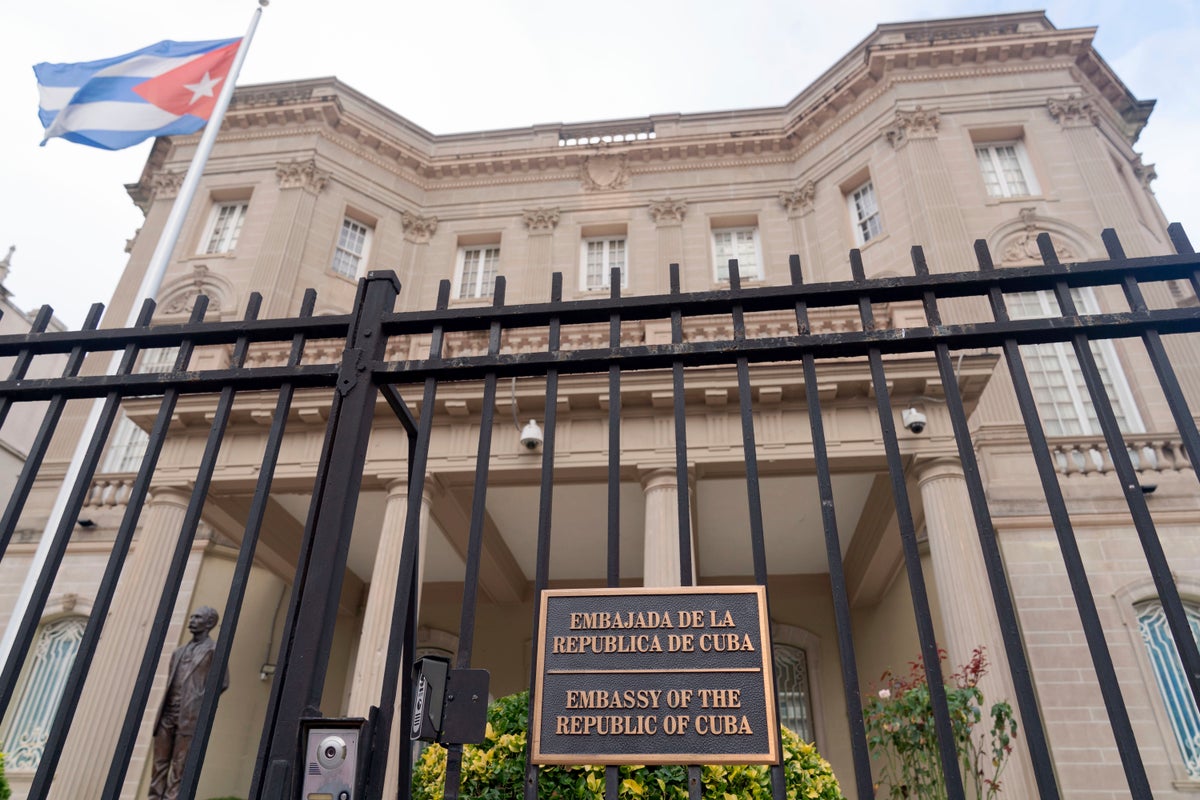
Cuba’s ambassador to the United States says a weekend incident in which at least one incendiary device was thrown into the Cuban embassy compound was a “terrorist attack.”
The Cuban embassy's chief of mission, Lianys Torres Rivera, told The Associated Press in an interview on Tuesday that the Sunday night incident was part of a pattern of attacks directed at Cuban overseas missions over the course of the last ten years.
“We think that it’s a terrorist attack that according to that and according to the history of a terrorist attack, that for decades it has been done against Cuban diplomatic missions,” she said.
She could not comment on the motivation of the attacker, who remains at large, but said “we think that the origin, the roots, it’s in this case in this a policy of aggression and hatred against Cuba that for decades has been the one of the difference a U.S. administration against our country.”
The incident remains under investigation by the Washington D.C. police, the Secret Service and the State Department. U.S. officials, including President Joe Biden's national security adviser Jake Sullivan and the State Department, have condemned the attack.
Torres Rivera said the embassy would continue to function as normal.
“We are just alert and taking the proper measure that have to be taken, that has to be taken, in situations like this,” she said. “And, I think that in the case of the U.S. as a host country, they should also take this as a call to secure the embassy staff and the premises to avoid or to prevent ... attacks like this in the future.”
U.S. law enforcement officials said Monday they were investigating the attack but said there was no significant damage and no one was injured, as did the Cuban embassy.
Secret Service officers were called around 8 p.m. Sunday to respond to the attack on a busy street in the Adams-Morgan section of the city.
Cuban Foreign Minister Bruno Rodriguez said on the X social media site that the Cuban Embassy “was the target of a terrorist attack by an individual who threw 2 Molotov cocktails,” a type of crude grenade made from a bottle filled with flammable liquid and a wick that’s lit just before it’s thrown.
In 2020, a Cuban man who sought asylum in the U.S. opened fire with an AK-47 at the Cuban Embassy, spraying the front of the building with nearly three dozen rounds. Authorities said the man told them he opened fire because he wanted to “get them before they could get him.”
The shooting left bullet holes in the glass around the embassy’s door, and bullets pierced the bronze statue of Jose Marti, the Cuban writer and national hero, as well as the columns and facade of the building.
Cuba built the embassy in 1917. It closed in January 1961 as Cold War tensions between the two countries escalated, and it reopened as an “interests section” in 1977. In July 2015, it became an embassy again as the two countries restored relations under President Barack Obama and President Raul Castro.
The embassy is on a busy street between the embassies of Poland and Lithuania.







